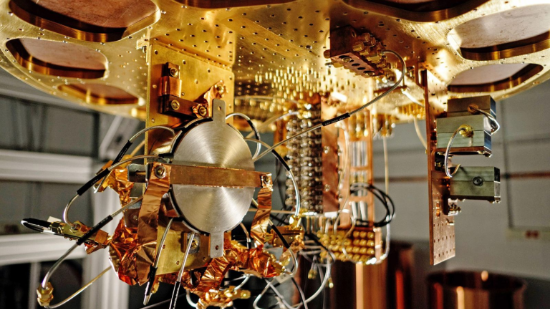Source – https://analyticsindiamag.com/
Anish Agarwal, Director, Data & Analytics, India at NatWest Group discussed how quantum computing plays a vital role in the advancement of artificial intelligence.
Machine Learning Developers Summit (MLDS 2021) is one of the biggest gatherings of machine learning developers in India. With more than 1,500 machine learning developers, 60 speakers from around 200 organisations, the conference corrals India’s leading Machine Learning innovators and practitioners to share their ideas about machine learning tools, advanced development and more.
Anish Agarwal, Director, Data & Analytics, India at NatWest Group, talked about “The Interplay between Quantum Theory And Artificial Intelligence” at MLDS 2021.
The session started with an introduction to emerging technologies like artificial intelligence, a brief on quantum computing, different forms of quantum technology used for various military as well as civilian applications, how it is different from the classical computers as well as how quantum computing plays a vital role in the advancement of artificial intelligence.
In the field of quantum computing, Agarwal discussed the technique of quantum artificial intelligence, how it can be used for computation of machine learning algorithms and what makes this technology unique.
Quantum AI can help in achieving results that are impossible with classical computers. He said, as per reports, 25 percent of fortune global 500 companies will have a competitive edge from quantum computing by the year 2023. Tech giants like Google, Microsoft are doubling down on quantum computing.
He then explained the possibilities of applying quantum computing in AI:
- Quantum Algorithms for Learning: Specifically for machine learning, quantum algorithms for learning can provide possible speedups and other improvements in a deep learning training process. The contribution of quantum computing to classical machine learning can be achieved by presenting the optimal solution at the base of artificial neural networks.
- Quantum Search: Quantum search algorithm can be described as a database search algorithm.
- Quantum Algorithms for Decision Problems: Quantum algorithms based on Hamiltonian time evaluation can solve problems faster than classical algorithms.
He said, “Quantum machine learning (QML) is not one settled homogeneous field. This is because machine learning itself is quite diverse in nature.” He added, “Quantum Machine Learning is simply the field exploring the connections between quantum computing and quantum physics on one hand and machine learning and related fields on the other hand.”
Agarwal then deliberated on Quantum Game Theory and compared it with classical game theory. He said quantum game theory can be used to overcome critical problems in quantum communications.
He also discussed the advantages of quantum AI:
- Quick resolution of complex problems
- Optimisation
- Ability to spot patterns in extremely large datasets
- Integrating data from different datasets
Agarwal concluded the session by touching upon the key applications of quantum artificial intelligence. Lastly, he mentioned some of the critical milestones for quantum AI and busted a few myths related to quantum computing techniques.
The critical milestones include:
- Less error-prone and more powerful quantum computing systems
- Widely adopted open-source modelling and training frameworks
- Substantial and skilled developer ecosystem
- Compelling AI applications
